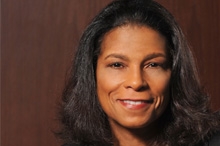Working for Healthier Communities
Risa Lavizzo-Mourey is being honored as a White House Champion of Change for her leadership and commitment to the ideals of the YMCA.

Every year when summer rolls around, I remember the great times my brother and I had at the Y summer camp that we attended near Seattle. Hiking, swimming, and reconnecting with our camp buddies was something we looked forward to every season.
That was a long time ago, but for thousands of youngsters across America the Y still stands for healthy fun and personal development. Kids can learn to swim and get help with homework at the same place. They can join a Y sports team, or take a class in art. And, of course, they can go to camp. At the Robert Wood Johnson Foundation, we believe that good health begins where we live, work, learn and play, and for more than 160 years the Y has manifested that philosophy.
In far too many neighborhoods, especially in urban areas, getting kids healthy and keeping them from getting obese is a daily challenge. There often are no grocery stores or supermarkets for miles around. Corner stores and fast food joints rarely offer fresh fruits and vegetables. Parents are too frightened to let their kids walk to school, bike, or visit parks and playgrounds, if they even exist.
It’s no wonder that over the past 20 years childhood obesity has become a serious health problem across our nation, threatening the futures of our young, our economy, the stability of our health care system, and even our national security.
In 2007, RWJF committed $500 million toward reversing the childhood obesity epidemic with the aim of getting government, businesses, organizations, and communities to work together to serve nutritious foods in schools, create places where children can safely play before, during, and after school, bring healthy, affordable foods into neighborhoods, and limit kids’ exposure to unhealthy marketing messages.
Everyone has a role to play in reversing the childhood obesity epidemic: from members of Congress to industry leaders; from child care providers to individual parents and children. And I want to congratulate the Y for stepping up in a significant way.
Through its Pioneering Healthy Communities Initiative, the Y has inspired more than 3,900 healthy changes in the programs it operates and the communities it serves. Its targeted efforts, along with comprehensive action taken by other organizations working for the same goal, have paid off. The steep upward climb of childhood obesity rates has stopped. And in several communities, like Philadelphia, Baldwin Park, Calif., and Kearney, Neb., we’re actually seeing the first signs of reversing the epidemic.
But we still have a long way to go. African Americans, Latinos, and children in lower-income communities are still at risk of being left behind, and that’s an outcome we cannot accept. The good news is that Y’s exist in every kind of neighborhood, and we are proud to be partnering with them to keep the momentum moving in the right direction.
The progress we’ve seen already gives me confidence that, by working together, we will achieve our goal of building a healthier America sooner rather than later.
Risa Lavizzo-Mourey is President and CEO of the Robert Wood Johnson Foundation (RWJF).
White House Blogs
- The White House Blog
- Middle Class Task Force
- Council of Economic Advisers
- Council on Environmental Quality
- Council on Women and Girls
- Office of Intergovernmental Affairs
- Office of Management and Budget
- Office of Public Engagement
- Office of Science & Tech Policy
- Office of Urban Affairs
- Open Government
- Faith and Neighborhood Partnerships
- Social Innovation and Civic Participation
- US Trade Representative
- Office National Drug Control Policy
categories
- AIDS Policy
- Alaska
- Blueprint for an America Built to Last
- Budget
- Civil Rights
- Defense
- Disabilities
- Economy
- Education
- Energy and Environment
- Equal Pay
- Ethics
- Faith Based
- Fiscal Responsibility
- Foreign Policy
- Grab Bag
- Health Care
- Homeland Security
- Immigration
- Innovation Fellows
- Inside the White House
- Middle Class Security
- Open Government
- Poverty
- Rural
- Seniors and Social Security
- Service
- Social Innovation
- State of the Union
- Taxes
- Technology
- Urban Policy
- Veterans
- Violence Prevention
- White House Internships
- Women
- Working Families
- Additional Issues

